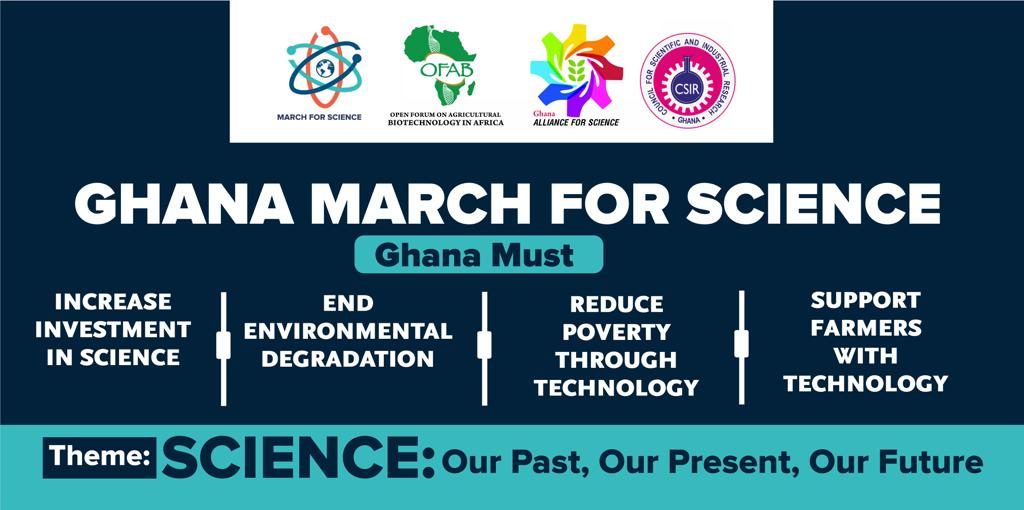A number of science groups in Africa will join the rest of the world for Saturday’s global March for Science, with poverty eradication on the continent and food security dominating the agenda.
More than 150 marches are planned in cities across the world, with people mobilizing for science town halls, rallies, outreach events and marches to send a message that science advocates are a force for a good future. Supporters in Ghana, Nigeria, Malawi and Uganda will be among them.
In Ghana, a 45-minute walk will be held on the streets of Tamale, the main city in the northern part of the country. The march will focus on the role that science can play in helping the nation meet Sustainable Development Goals 1, 2 and 3. These three goals aim to end poverty in all its forms, improve nutrition and food security, and push for urgent steps to combat climate change and its impact. The Ghana March for Science 2019 will follow the theme “Science — Our past, our present and our future” to emphasize the importance of science in national development.
“Up to 10 percent of Ghanaians are still living in extreme poverty and in Northern Ghana, up to 30 percent of children under five are stunted or chronically malnourished,” read a statement issued by Reuben Quainoo of Alliance for Science Ghana, which is organizing the event. “The objective of the march is to draw attention to how science can be used to fix such problems of poverty. We as scientists are convinced if these challenges can be dealt with effectively, science has a crucial role to play. Specifically, we are asking that government increases investments in science and technology to at least 5 percent of GDP from the current 0.5 percent.”
More than 500 people are expected to gather for the Ghana event, which Quainoo says will also give farmers the “opportunity to voice their demand for access to improved seeds to help ensure better agricultural productivity.”

In Nigeria, a “science hang out” event will be held in Abuja to mark the occasion. According to the organizers, Nigeria Alliance for Science, the march will seek to draw the attention of government and the public to the importance of science in our everyday lives. “Science is often ignored by government and the society,” explained coordinator Nkechi Isaac. “However, science is the very essence of life. It plays a key role in every facet of life.”
Isaac said the “hang out” will draw attention to the important role of science in climate action, education and healthcare. “The event will put the spotlight on why the Nigerian government should take decisive steps to promote climate action and dedicate more funds to boost healthcare service delivery and research in the education sector,” she said.
Isaac commended moves by the government to protect the environment through the adoption of improved technology, but says more needs to be done. “Although the Federal Government of Nigeria is already taking steps to promote environmentally friendly practices in the agricultural sector by approving the environmental release of two genetically modified crops, Bt cotton and cowpea, which will ensure drastic reduction in the use of pesticides, they need to do more,” she noted. “Especially in the area of funding research in the science sector.”
In Uganda, March for Science Kampala will begin on the campus of the Makerere University College of Natural Resources and bring together students, scientists, political leaders and science lovers to celebrate the contribution of science to the nation’s development. “It will also be a platform for us to demand for evidence-based policy-making that serves all communities,” organizers of the march explained.
Launched in 2017, March for Science groups are run by individuals, teams, formal organizations and coalitions of community members who share the mission to promote science in all spheres of life.
“Over the last two years, our grassroots people-powered movement has organized 1,000 events and mobilized millions for science and justice,” the global March for Science organization noted in a statement. “We can’t stop now. Our leaders continue to delay climate action. Science continues to be sidelined at our federal agencies. Healthcare and education continue to be neglected. We need to keep making our voices heard.”
